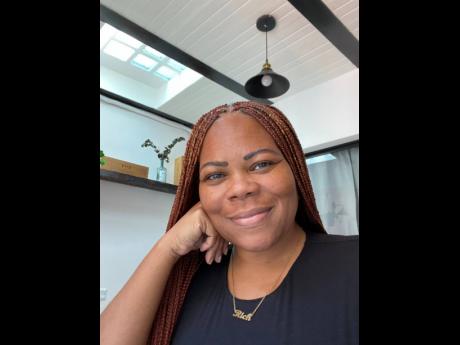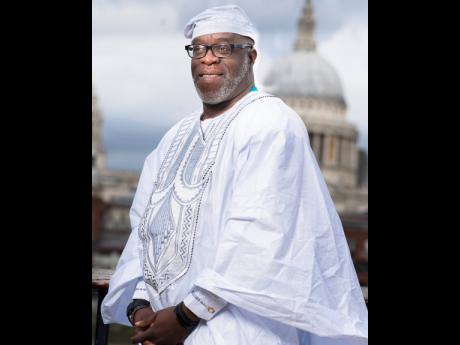‘Crime is not an issue’
Black expats and repats make Jamaica their home
WESTERN BUREAU:
Steering clear of nations that marginalise, harm and kill them because of the colour of their skin, blacks from 30 different countries have embarked on an exodus into Jamaica.
With a high concentration from the United States, Canada and Great Britain, many with absolutely no roots to Jamaica, the group has tagged themselves ‘Black Expats and Repats in Jamaica (BERJ)’.
The island’s crime rate is no deterrent, they say, as “America is as violent, particularly against black people and other ethnic groups”, noted T. Clarice Norton, who was born and raised in the deep south in Mississippi.
“When talking about crime in Jamaica, the concept is kind of perplexed,” Norton expressed, positing that Jamaica is labelled among the most violent in the world, “But I haven’t experienced enough to say that. Not that there is no crime, but I think comparing a small island to other places is not a fair label.”
Norton, who relocated to Jamaica in the middle of the COVID-19 pandemic as an online English instructor, said there is no way that anyone who lives in places such as Florida and New York can call Jamaica violent.
Her expat colleagues concurred, with Aisha ‘MeeMee’ Whyte, a tour operator who has spent the last 13 years here, stating that she fell in love with Jamaica’s culture, which was the driving force behind her relocation.
For LaTanzia Jackson, who grew up in West Palm Beach, Florida, she wanted to live in a place where there was no language barrier. “And where there were more people that looked like me. I also wanted the climate,” she shared with The Sunday Gleaner.
The sole male in the administrative team, authorpreneur, publisher and workshop facilitator, Kwame McPherson – who was born in the United Kingdom, but moved to Jamaica at age seven and has been in and out of Kingston since – said his intention was always to make Jamaica his home, “and crime was never an issue. Jamaica is my home”.
FORMIDABLE ORGANISATION
The four are administrators of BERJ, which was founded by Norton in September 2020 on the social media platform Facebook, and has since transitioned into a formidable organisation incorporating a limited business, social enterprise features and bringing to the fore diaspora-related issues.
BERJ has approximately 2,000 members and receives an average of 30 new requests per week.
“We are projecting that our membership will be at least 3,000 by year-end and envisage that over the next three years, BERJ will be poised to provide resources, guides, and services to over 5,000 individuals,” McPherson told The Sunday Gleaner.
Sixty-five per cent of the group’s membership, although they have no ancestry here, wants to make Jamaica their home. The others with Jamaican roots, from their parents or grandparents, and some who were born in Jamaica but have lived overseas, are ready to come back home.
“About 25 per cent of the group lives in Jamaica permanently, 25 per cent do long stretches of time here, while the other 50 per cent are looking to make a living here permanently,” explained McPherson.
“Those are the ones who want to call Jamaica home, who want to have a tie, who want to have a property housing, employment, those types of things.”
The BERJ is not just interested in people moving here, but they must come to the island and be sustainable; contribute to the economy; become acclimated with the culture; and understand the ins and outs and how to navigate Jamaica. That is the primary purpose of their Facebook page.
“So what we realise is that we have people from all over the world in this space who want to come to Jamaica for the reasons we’ve stated previously, but they have no clue how to operate,” the BERJ administrators explained.
‘DOS AND DON’TS OF RESETTLING IN JAMAICA’
According to them, they have found Jamaicans who go abroad, achieve great wealth in training, education and experience, but can’t figure out what to come back to do.
“Many of them want to reclaim their culture that they may have been robbed of,” argued Jackson.
One of the first significant moves BERJ has made is to produce the ‘Dos and Don’ts of Resettling in Jamaica’ e-book, which can be found at berjamaica.com. They have also developed a 2021-2023 Strategic Plan; created a classified page for member businesses and connected with corporate Jamaica with a view of building collaborations/partnerships.
“The book entails things like how to go about getting a bank account and letting them know that when they get here they need to apply for their TRN (Tax Registration Number). Also, what organisations to contact for housing and it talks briefly about the different parishes that are within Jamaica, what to expect when you are dealing with some of the governmental agencies, and so on,” explained Norton, who is an expert in digital media development.
“It gives people some sort of basis and basic knowledge of what to do when you first land. If you’re not of Jamaican descent like myself, you may want to go ahead and contact PICA (Passport, Immigration and Citizenship Agency) and go ahead and start doing the paperwork for your extension so that you have enough time in the country to start getting yourself settled,” added Jackson.
The BERJ team has met with the Ministry of Labour and Social Security, while creating a space for people with Jamaican roots to integrate and assimilate and to give back.
“A lot of time it is about mental and emotional freedom. You can’t put money on that,” they conclude.




